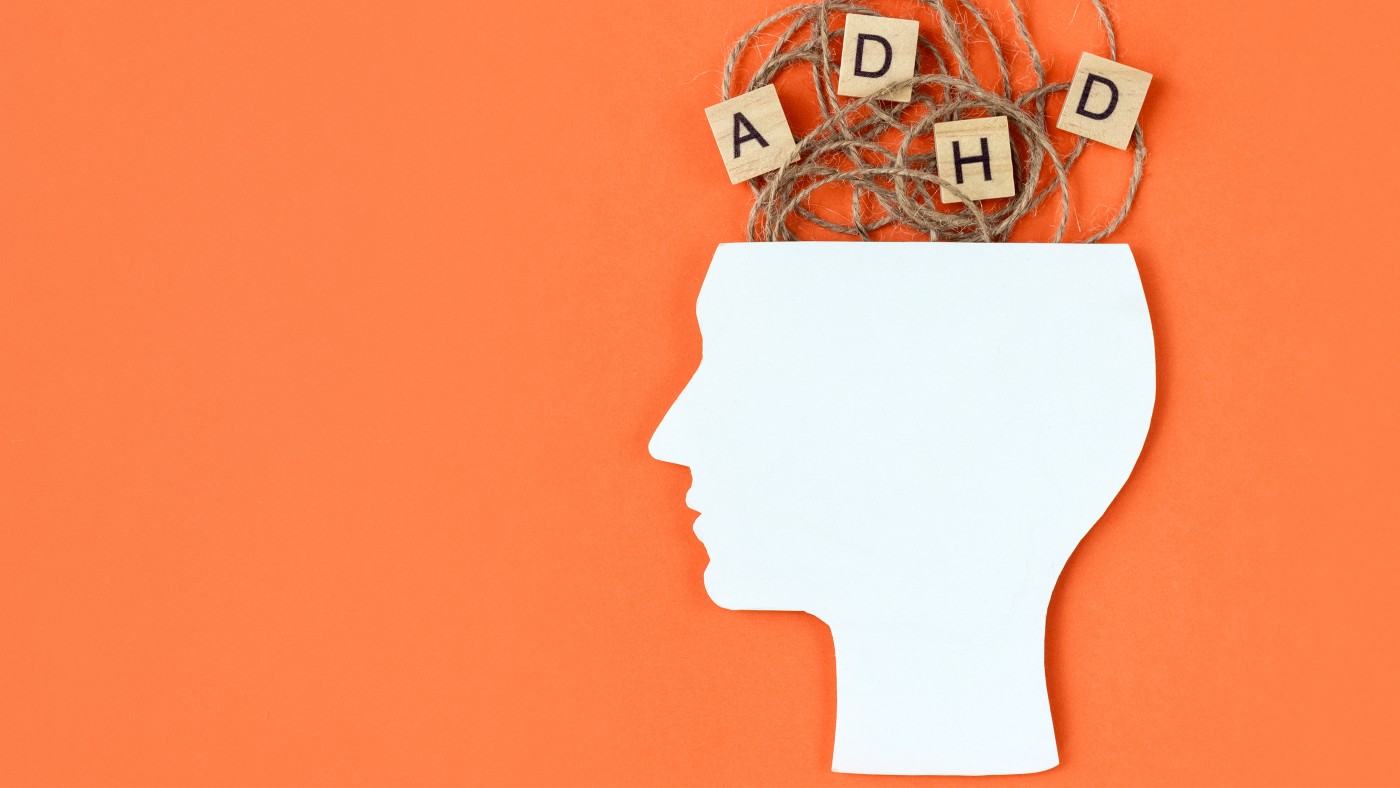The ‘dramatic’ rise of ADHD
Diagnoses of attention deficit hyperactivity disorder have risen sharply in the UK

A free daily email with the biggest news stories of the day – and the best features from TheWeek.com
You are now subscribed
Your newsletter sign-up was successful
Doctors have described symptoms that might now be categorised as ADHD for several hundred years.
In 1798, the Scottish physician Sir Alexander Crichton noted “mental restlessness” and “the fidgets” in some children. In 1902, the paediatrician Sir George Frederic Still wrote in The Lancet about an “abnormal defect of moral control in children”, which interfered with their powers of concentration. The use of stimulants to treat such conditions began in the 1930s; a Rhode Island doctor had noticed that Benzedrine made children behave better and improved their school performance.
By the late 1960s, the condition was beginning to come into focus: it featured in the diagnostic “bible” of the US psychiatric profession, the Diagnostic and Statistical Manual of Mental Disorders (DSM), albeit described as a “hyperkinetic reaction of childhood”, a term coined in the 1930s by Franz Kramer and Hans Pollnow, two German doctors. Attention deficit disorder (ADD) appeared in the 1980 edition, in two variants: with hyperactivity and without it. In the 1987 edition of the DSM, they were merged into ADHD (with its three subtypes). It is a reminder that, though the symptoms of ADHD are very real, diagnostic categories evolve considerably over time.
The Week
Escape your echo chamber. Get the facts behind the news, plus analysis from multiple perspectives.

Sign up for The Week's Free Newsletters
From our morning news briefing to a weekly Good News Newsletter, get the best of The Week delivered directly to your inbox.
From our morning news briefing to a weekly Good News Newsletter, get the best of The Week delivered directly to your inbox.
How fast are ADHD cases rising?
Since 2020, there has been a 400% increase in adults seeking an ADHD diagnosis in the UK, according to the ADHD Foundation. Psychiatry UK, which provides assessments for the NHS and for private patients, has seen a “dramatic” rise in referrals. There was an 18% increase in the monthly average of NHS patients receiving treatment for the condition between 2021 and 2022. The UK doesn’t publish national data about the number of children seeking a diagnosis, but child psychiatrists told The Observer that the numbers had doubled, tripled, even quadrupled in recent years.
What exactly is ADHD?
The condition, which was only defined in the 1980s and recognised by the NHS in 2000, is a behavioural syndrome characterised by a range of symptoms, which fall into two main categories. The first is the “attention deficit” side. Those with ADHD have trouble concentrating; they often appear unable to listen or carry out instructions, constantly change activities or tasks, and can be very forgetful. The second category is the “hyperactivity” side, which refers to restlessness and impulsiveness: fidgeting, excessive talking, excessive physical movement, acting without thinking, or having little sense of danger. In order to be diagnosed, you have to have a number of symptoms from one or both categories; you must have had them for a long period, and they must have caused serious difficulties. There are three subtypes: predominantly inattentive; predominantly hyperactive-impulsive; or combined, with both inattentive and hyperactive-impulsive features. Although now well established, ADHD remains controversial.
Why is it controversial?
The concept has often been criticised. Some have argued that common habits and personality traits such as restlessness, impulsivity and fidgeting do not warrant being labelled as “symptoms” of a “disorder”. Some sociologists consider ADHD to be an example of the medicalisation of what is deemed deviant behaviour: the idea it is a medical problem warranting intervention is largely limited to North America and, more recently, Western Europe. Trying to treat ADHD, one sceptical psychiatrist wrote, means trying to treat “the symptoms of modern life”. Many see it as a fad, not a real condition – an alibi for bad parenting, or a get-out for laziness or bad behaviour. The widespread use of stimulants to treat children diagnosed with ADHD has also aroused suspicion. However, the mental health professions remain convinced that diagnosis is valid and the condition serious.
Why are they convinced?
Although scientists do not fully understand the causes of ADHD, they know that it has a clear neurological basis. It is closely correlated with deficits in neurotransmitters such as dopamine, and with structural abnormalities in the brain: several studies have pointed to a slightly smaller prefrontal cortex and basal ganglia than average. Although ADHD is not associated with any one gene, it clearly has a genetic component: heritability is estimated at around 80%. Perhaps more importantly, ADHD has been shown to be a helpful therapeutic categorisation. Sufferers find that diagnosis gives them insight into their difficulties and their lives. Treatments, including therapy and drugs, are effective. (Curiously, stimulants such as methylphenidate – Ritalin – have the effect of slowing and calming people with ADHD.)
A free daily email with the biggest news stories of the day – and the best features from TheWeek.com
Who has the condition?
The figures suggest that it is one of the most common neurodevelopmental conditions. The National Institute for Health and Clinical Excellence (Nice) estimates that global prevalence of ADHD in children is around 5%; it’s more common in boys than girls, by at least two to one. Among adults, it thinks prevalence is rather lower, at 3% to 4%, with a male to female ratio of about 3 to 1. Diagnosis is complicated, since it is estimated that over half of those affected have a concurrent diagnosis such as anxiety, depression, autism, bipolar disorder or psychosis. One in four prisoners in Britain are believed to have ADHD, according to a 2022 report by the ADHD Foundation. This gives some indication of the very considerable difficulties that sufferers can face. Levels of unemployment, school expulsion and suicide are all higher among people with ADHD.
Why are diagnoses on the rise?
If Nice’s figures are right, ADHD has long been under-diagnosed in the UK: under 2% of children have a diagnosis and under 1% of adults. Arguably, that is now being slowly corrected as awareness of the condition is raised, and more people hear about the symptoms. And it seems many adults have sought diagnoses because children’s symptoms have been noticed at school. ADHD is also “massive on TikTok”, reports BBC News: short videos raising awareness and discussing the condition have been viewed billions of times. But some worry that this may be encouraging inaccurate self-diagnoses, and adding to NHS waiting lists.
How bad is the backlog?
NHS waiting lists for assessment are very long. An analysis by ADHD UK found that in 2022, the mean waiting time for adults, between a GP’s referral and being assessed by a specialist, was 58 weeks. In many cases, people waited for much longer: up to two years in England, and up to four in Northern Ireland. For children, the average was 30 weeks (in the worst cases, reaching nearly two years). Chronic underfunding, a struggling post-pandemic NHS and the surge in demand have exacerbated the problem, and led to a surge in private clinics offering assessments and diagnoses. A BBC Panorama documentary found some of these clinics, which charge up to £1,000, are diagnosing the condition and prescribing powerful medication after perfunctory consultations: an online questionnaire and a quick phone call.
-
 ‘Poor time management isn’t just an inconvenience’
‘Poor time management isn’t just an inconvenience’Instant Opinion Opinion, comment and editorials of the day
-
 Bad Bunny’s Super Bowl: A win for unity
Bad Bunny’s Super Bowl: A win for unityFeature The global superstar's halftime show was a celebration for everyone to enjoy
-
 Book reviews: ‘Bonfire of the Murdochs’ and ‘The Typewriter and the Guillotine’
Book reviews: ‘Bonfire of the Murdochs’ and ‘The Typewriter and the Guillotine’Feature New insights into the Murdoch family’s turmoil and a renowned journalist’s time in pre-World War II Paris
-
 ‘Longevity fixation syndrome’: the allure of eternal youth
‘Longevity fixation syndrome’: the allure of eternal youthIn The Spotlight Obsession with beating biological clock identified as damaging new addiction
-
 Growing a brain in the lab
Growing a brain in the labFeature It's a tiny version of a developing human cerebral cortex
-
 Health: Will Kennedy dismantle U.S. immunization policy?
Health: Will Kennedy dismantle U.S. immunization policy?Feature ‘America’s vaccine playbook is being rewritten by people who don’t believe in them’
-
 RFK Jr. sets his sights on linking antidepressants to mass violence
RFK Jr. sets his sights on linking antidepressants to mass violenceThe Explainer The health secretary’s crusade to Make America Healthy Again has vital mental health medications on the agenda
-
 Obesity drugs: Will Trump’s plan lower costs?
Obesity drugs: Will Trump’s plan lower costs?Feature Even $149 a month, the advertised price for a starting dose of a still-in-development GLP-1 pill on TrumpRx, will be too big a burden for the many Americans ‘struggling to afford groceries’
-
 Ultra-processed America
Ultra-processed AmericaFeature Highly processed foods make up most of our diet. Is that so bad?
-
 The quest to defy ageing
The quest to defy ageingThe Explainer Humanity has fantasised about finding the fountain of youth for millennia. How close are we now?
-
 The battle of the weight-loss drugs
The battle of the weight-loss drugsTalking Point Can Novo Nordisk and Eli Lilly regain their former stock market glory? A lot is riding on next year's pills